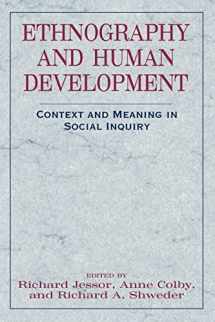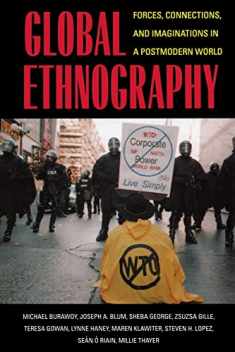
Ethnography and Human Development: Context and Meaning in Social Inquiry (The John D. and Catherine T. MacArthur Foundation Series on Mental Health and Development)
Book details
Summary
Description
Studies of human development have taken an ethnographic turn in the 1990s. In this volume, leading anthropologists, psychologists, and sociologists discuss how qualitative methodologies have strengthened our understanding of cognitive, emotional, and behavioral development, and of the difficulties of growing up in contemporary society.
Part 1, informed by a post-positivist philosophy of science, argues for the validity of ethnographic knowledge. Part 2 examines a range of qualitative methods, from participant observation to the hermeneutic elaboration of texts. In Part 3, ethnographic methods are applied to issues of human development across the life span and to social problems including poverty, racial and ethnic marginality, and crime.
Restoring ethnographic methods to a central place in social inquiry, these twenty-two lively essays will interest everyone concerned with the epistemological problems of context, meaning, and subjectivity in the behavioral sciences.


We would LOVE it if you could help us and other readers by reviewing the book
Book review




